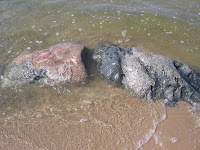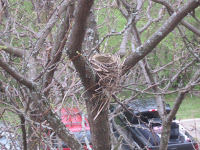
My mother has a strong Polish accent, so I am not bothered as much by accents as some people are. And I so respected the way my African American and Hispanic students in Texas were able to "code switch." I am learning so much from my MSU classmates about World English and also from reading a fabulous little anthology by Smitherman and Villanueva (2003) called Language Diversity in the Classroom: From Intention to Practice. Here is a quote from Kim Brian Lovejoy:
As more teachers develop their pedagogies to accommodate diverse students and their linguistic differences, we will begin to see the kind of programmatic changes in writing programs that can have an impact on large numbers of students and create an environment for teachers to share best practices and to talk, reflectively and productively, about issues of linguistic diversity in the classroom (p. 96).
In honor of this learning in school and in "informal learning" at a wedding I attended over the weekend where I learned about Indian food and dance and marriage, I submit this photo.





